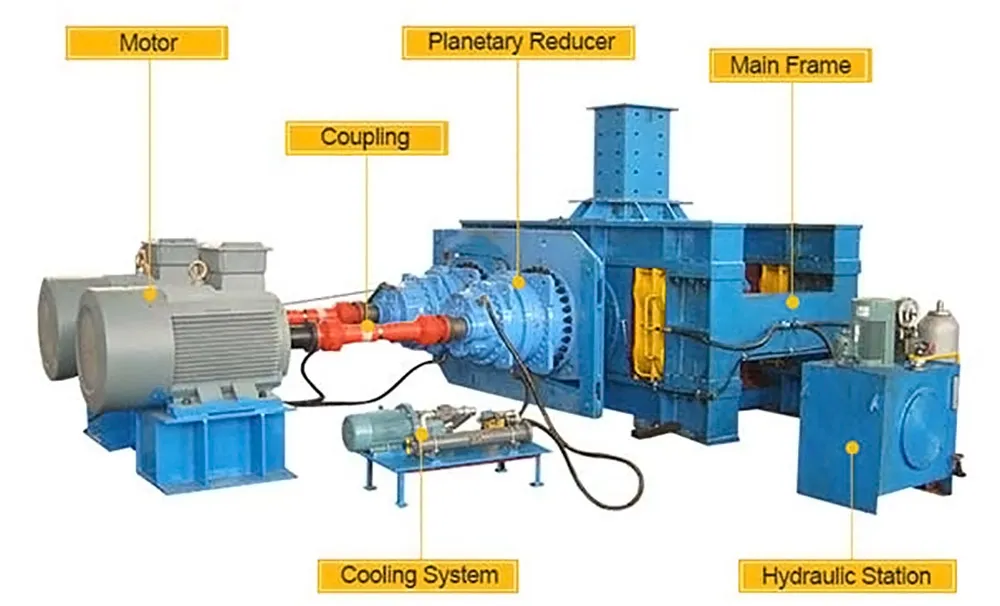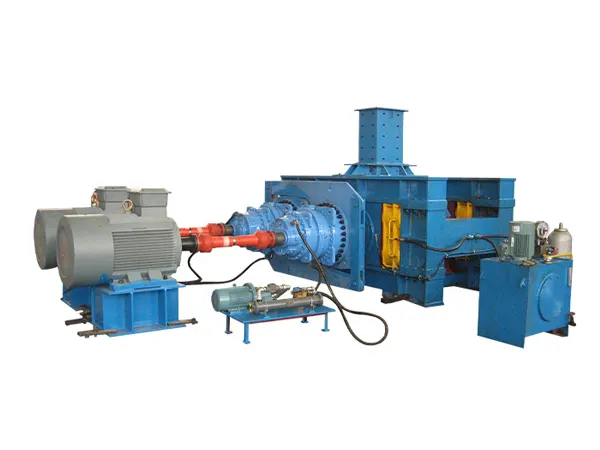The drive system of a high-pressure grinding roller (HPGR) is a crucial component that powers the rollers to perform efficient grinding under high pressure, a process commonly used in mining, cement, and aggregate industries. This system is responsible for providing the necessary torque and controlling the speed and load to optimize the grinding process.

Single Motor Drive: A single motor powers both rollers, typically through a gearbox and coupling arrangement. This setup can be simpler but may require a more complex transmission system to ensure synchronized roller rotation.
Dual Motor Drive: Each roller has its own motor, providing more control and flexibility. Dual motor drives are preferred in large-capacity or high-torque applications because they ensure that both rollers can operate independently while maintaining synchronized movement.
Hydraulic Drive: In some designs, hydraulic systems are used to drive the rollers. Hydraulic drives provide high torque and smooth control, which can be advantageous for handling varying material loads and ensuring even pressure distribution.
Variable Frequency Drive (VFD): VFDs are used to control the speed of the motors, allowing operators to adjust the roller speed based on the feed material characteristics and required grinding pressure. This flexibility is critical for optimizing efficiency and reducing wear on the rollers.
Load-Sensing System: A load-sensing mechanism monitors the pressure exerted on the rollers. The system adjusts the torque and speed accordingly to maintain consistent grinding pressure, which helps to optimize throughput and protect the rollers from overloads.
PLC and Automation: Many HPGR systems use programmable logic controllers (PLCs) with automation capabilities to monitor and adjust parameters in real-time. This helps to maintain a stable grinding process, reduce energy consumption, and improve the lifespan of the equipment.
HPGR drive systems are designed to generate high torque to withstand the high-pressure grinding process. Torque control ensures even distribution of pressure across the roller width, preventing uneven wear on the rollers.
Dual motor drives often use torque distribution controls to synchronize the rotation of both rollers, balancing the load and optimizing material throughput.

Gearboxes in HPGR systems are robust and designed to handle high loads. Planetary gearboxes or helical gear systems are commonly used due to their high efficiency and torque-handling capabilities.
...
For more detailed information about the transmission system of high pressure grinding roll, please click to visit: https://www.zymining.com/en/a/news/high-pressure-roller-grinding-machine-drive-system.html